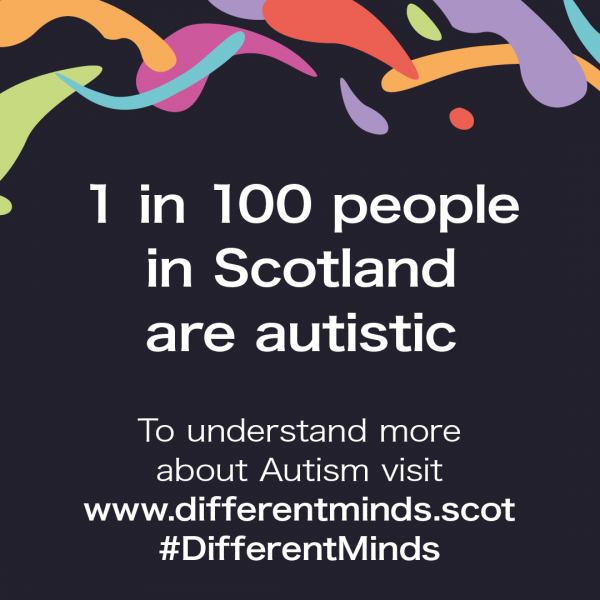Reforming Social Care in Scotland: First Thoughts
Dorry McLaughlin, Chief Executive of Scottish Autism and Joe Long, Research and Policy Lead at Scottish Autism
The Covid-19 pandemic has shone a stark light on socialcare in the UK. However, the Scottish Government’s review of adult social care offers us an opportunity to shape and improve services for autistic people. Here we highlight some key issues that we think the review should consider.
Social care is not just about services for people at one given stage in their lives. It should be about supporting people throughout their lives. This is especially important for autistic people and those with intellectual disabilities. We need all agencies, including health and social care, to consider and plan for a person’s whole life journey so that transitions do not become ‘cliff edges’ where services fall away or appear as traumatic points in a person’s life. We can and should invest to prevent crises that do not need to happen.
To achieve this requires a shared understanding and a holistic view of a person’s life and aspirations by health, social care, education and other services. Supported autistic people need to be involved in creating this shared understanding and be at the heart of shaping decisions about their lives from the outset. The integration of health and social care has not seen budgets shared. Professional silos have not been broken down and health services remain the dominant partner. Joined-up service commissioning and provision will only come when this happens. A starting point would be a single gateway into services. This will be vital in ensuring that those autistic people who do not have an intellectual disability or acute mental health difficulty do not fall through the gaps in service provision.
Quality support can only be achieved if the workforce supporting autistic people have appropriate skills and knowledge coupled with professional values and standing. Generic, tick-box qualifications such as the SVQ do not provide such knowledge or skill. Investment is needed in a professional, properly rewarded workforce who choose social care as a vocation as well as a career; investment in the skills and career development of practitioners; and funded time to train and learn. A professionalised model for service provision includes resources for the generation and exchange of practice knowledge. These are not optional extras but fundamental to the provision of quality services, innovative and evidence-informed support, and continuous improvement in all aspects of support for autistic people.
Importantly social care should continue to embrace the diversity and specialism offered in the third sector. This includes specialist autism providers as brokers of autism knowledge, and autistic-led organisations able to offer a community of lived experience, expertise and peer support.
Above all, health and social care services should take a human-rights based approach to supporting autistic people. Crucially, government, public services and social care providers should be held accountable for upholding and promoting human rights. To this end we are proposing an Autism and Learning Disability Commissioner for Scotland to close the current accountability gap. We have seen countless reviews and legislation passed- now is the time and opportunity for real, systemic change. We offer these proposals as starting points for a dialogue about social care reform and look forward to hearing ideas from our wider community.





